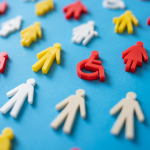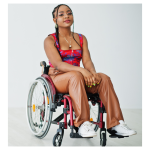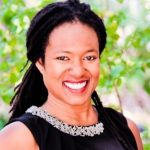[vc_row][vc_column][vc_column_text css=”.vc_custom_1722343298968{margin-bottom: 0px !important;}”]
Often, when we think about disability, the focus is on what an individual is unable to do. However, given that 22% of Canadians live with some form of disability it’s clear that people with disabilities are capable of quite a lot.
Disability Pride Month has been observed in July in the US since the  Americans with Disabilities Act was passed in 1990. It is now observed around the world, including in Canada. It creates an opportunity to highlight the strengths and contributions of disabled people and dismantle limiting beliefs about the nature of disability.
Americans with Disabilities Act was passed in 1990. It is now observed around the world, including in Canada. It creates an opportunity to highlight the strengths and contributions of disabled people and dismantle limiting beliefs about the nature of disability.
The term disability is designed to acknowledge that a person’s ability is limited by social and structural barriers that disenfranchise them and limit their participation.
In order to survive, many disabled people have to be ingenious in navigating a world that isn’t designed for them and which frequently doesn’t account for their existence. A strength-focused disability lens emphasizes the things the disabled person can do, using this as a starting point to reduce and remove barriers. It takes the view that what we construct as disability is simply natural variation among individuals and something to be celebrated rather than stigmatized. It’s a person-centered approach that prioritizes the disabled person’s right to self-determination and trusts that they are the expert on their strengths and limitations.
A strength-focused lens is a constructive framework for birthworkers supporting disabled birthers and new parents. These clients are up against many limiting beliefs regarding their ability to give birth and care for their newborns. For example, many prenatal healthcare providers believe that wheelchair users cannot push to deliver a baby and therefore must have early scheduled c-sections. This is not always true and there’s no evidence-based reason for that belief. A couple of years ago, we hosted a panel discussion of disabled parents, two of whom were wheelchair users who had birthed vaginally. One of them birthed precipitously. They both had to resist limiting beliefs on the part of care providers to realize the empowering births they deserved.
Several of the parents on that panel described intense surveillance in the hospital after their babies were born. The feeling that they were being watched and that people around them were waiting for them to fail rather than offering support was widespread.
 Encouraging people to take pride in their bodies and their ability to birth their babies is at the heart of our calling as doulas. Disabled people have so many reasons to feel proud of what their bodies have achieved. We can remind our clients that they have already come up with countless life hacks to get things done. These are all skills that they can transfer to the new situation of childbirth and infant care. We can let them know that we know that they’re a lot stronger than most people think they are. And where they are not strong, that’s okay, we’ve got their back if help is needed and wanted. We can be that person they remember as someone who didn’t make assumptions about what they could do, but asked questions instead.
Encouraging people to take pride in their bodies and their ability to birth their babies is at the heart of our calling as doulas. Disabled people have so many reasons to feel proud of what their bodies have achieved. We can remind our clients that they have already come up with countless life hacks to get things done. These are all skills that they can transfer to the new situation of childbirth and infant care. We can let them know that we know that they’re a lot stronger than most people think they are. And where they are not strong, that’s okay, we’ve got their back if help is needed and wanted. We can be that person they remember as someone who didn’t make assumptions about what they could do, but asked questions instead.
With such a high proportion of the population being disabled our birth work practices will inevitably include disabled people in the form of clients, colleagues, and ourselves. We see every one of you who provides long hours of birth support despite your chronic pain, or mental illness that requires regular sleep to stay in remission. We see all of you who tap into an extra reserve of energy to soothe a colicky baby or extend compassion to a new mother with postpartum depression. Your effort and your sacrifice matters. You deserve to take pride in the strengths of your body and mind that you share with your community each day.
Keira Grant (she/her) Inclusion and Engagement Lead – Racialized Communities

Keira brings a wealth of experience to the Online Community Moderator role. She is a Queer, Black woman with a twenty-year track record in Equity, Diversity, and Inclusion (EDI) education, projects, and community building initiatives.[/vc_column_text][/vc_column][/vc_row]
